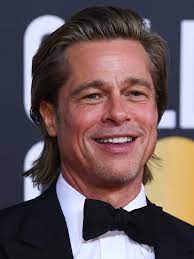Bhimrao Ambedkar Biography
- Dr. Bhimrao Ramji Ambedkar (April 14, 1891 – December 6, 1956) was an Indian polymath: a social reformer, economist, politician, author, and the chief architect of the Constitution of India.
- Born into a Dalit (“untouchability”) family, he faced social discrimination but persevered through exceptional academic pursuits, earning doctorates from Columbia University and the London School of Economics.
- He championed the rights of Dalits and other marginalized communities, advocating for political, economic, and social equality. He founded the Scheduled Castes Federation in 1942.
- He played a pivotal role in the Indian independence movement and served as India’s first Law Minister (1947-1951), leading the Constituent Assembly’s Constitution drafting committee.
- He is revered as the “Father of the Indian Constitution” and a key figure in India’s social and political transformation.
Bhimrao Ambedkar Nationality & Age
- Nationality: Indian
- Age at Death: 65
Bhimrao Ambedkar Education and Schooling
- Faced challenges due to his Dalit background, denied entry to regular schools initially.
- Attended Elphinstone High School in Bombay (present-day Mumbai) on a scholarship.
- Graduated from Bombay University (1923) with honors in Economics and Political Science.
- Secured the Sydenham College of Commerce and Economics’ first-ever M.A. in Economics (1924).
- Awarded two scholarships for further studies abroad:
- Baroda State Scholarship (1923): Studied at Columbia University (PhD in Economics, 1927; PhD in Law, 1928).
- Sir Alexander Grant Scholarship (1927): Studied at the London School of Economics (D.Sc. in Economics, 1933).
Bhimrao Ambedkar Relationship and Personal Life
- Married Ramabai Murbadkar (1906-1935), who faced societal ostracization due to his caste.
- Had one son, Yashwant (1912-1977), who later became a lawyer and writer.
- After Ramabai’s passing, remained unmarried.
Bhimrao Ambedkar Career Beginnings
- Experienced discrimination after graduation, despite qualifications.
- Worked as a teacher at Satara Training College (1919-1920).
- Started legal practice in Bombay (1924), later joining Wilson College as a Professor of Economics (1927-1932).
- Conducted research on labor issues and untouchability, publishing extensively.
- Launched periodicals like “Mook Nayak” and “Bahishkrit Bharat” to advocate for Dalit rights.
Bhimrao Ambedkar Career and Contributions
- Social Reformer:
- Fought for Dalit rights through organizations like the Scheduled Castes Federation.
- Led the Poona Pact (1932) to secure separate electorates for Dalits.
- Spearheaded the Nagpur Resolution (1956) to convert to Buddhism, inspiring the Dalit Buddhist movement.
- Politician:
- Elected to the Bombay Legislative Council (1926) and Legislative Assembly (1937) on reserved seats.
- Participated in the Constituent Assembly, advocating for a strong federal government and fundamental rights.
- Chaired the Constitution drafting committee, shaping India’s democratic blueprint.
- Jurist:
- Played a key role in framing the Constitution’s Part III (Fundamental Rights) and Part IV (Directive Principles of State Policy).
- Led the Hindu Code Bill revision committee, proposing progressive laws on marriage, inheritance, and property.
- Economist:
- Analyzed India’s economic problems and advocated for planned development.
- Proposed a national minimum wage and criticized caste-based discrimination in economic spheres.
- Author:
- Wrote extensively on politics, economics, sociology, and untouchability.
- His book “Annihilating the Caste” (1936) is a scathing critique of the caste system.
Bhimrao Ambedkar Achievements and Awards
- Headed the Constitution drafting committee, a landmark



